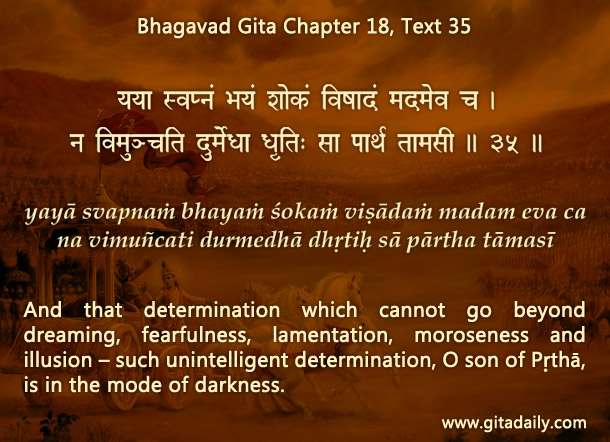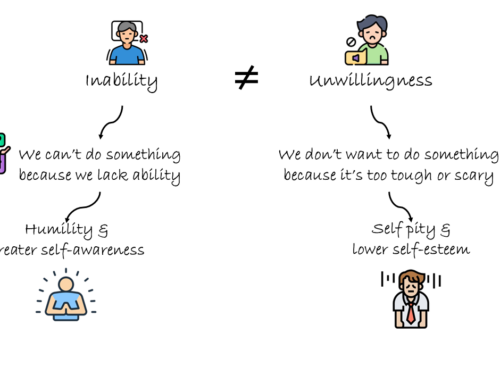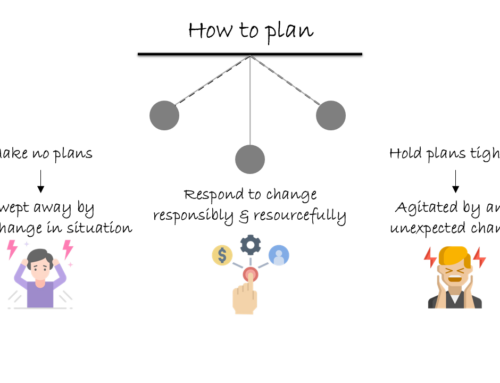We all stumble and fall at times. And sometimes our mistakes have serious, even grievous, consequences. On committing such mistakes, it’s natural and necessary that we feel remorseful — remorse triggers reform.
While being remorseful, we also need to be resourceful. We need to carefully contemplate what factors impelled us to do wrong and what factors can help us choose better in the future. If we just keep beating ourselves up for our mistakes, we will be tricked by our mind, which will play a devilish double role. First, it will make us do wrong by inciting us from within. And then it will beat us up for doing that thing. In both cases, we are letting the mind lord over us. The more it lords over us, it becomes stronger and we become conditioned to cowering before it. Being thus weakened, we will have far less autonomy to stand up to it later when it switches roles and starts impelling us to do wrong again.
Pertinently, the Bhagavad-gita (18.35) cautions that the mind infected by ignorance wallows in negativity such as fearfulness, self-loathing and moroseness. Therefore, if we are not to be fooled by such a mind, we need to couple our remorsefulness with resourcefulness; we need to start creating resources for us to resist the mind now and in the future. The Gita’s philosophical insights and spiritual practices can act as vital resources for inner empowerment. By keeping the resources that work for us readily accessible and tapping them when the mind starts dominating us, we can progress steadily toward self-reformation and eventually self-realization. Thereby, we will not only resist our tendency to commit mistakes, but will also unleash our potential to do worthwhile and even wonderful things.
One-sentence summary:
If we are remorseful without being resourceful, our mind is making us a fool.
Think it over:
- While we are remorseful, how may our mind make us a fool?
- How can we couple our remorsefulness with resourcefulness?
- What do you feel remorseful about? What resources can strengthen you?
***
18.35: And that determination which cannot go beyond dreaming, fearfulness, lamentation, moroseness and illusion – such unintelligent determination, O son of Prutha, is in the mode of darkness.
To know more about this verse, please click on the image
Explanation of article:
Podcast:






nice,please keep it up